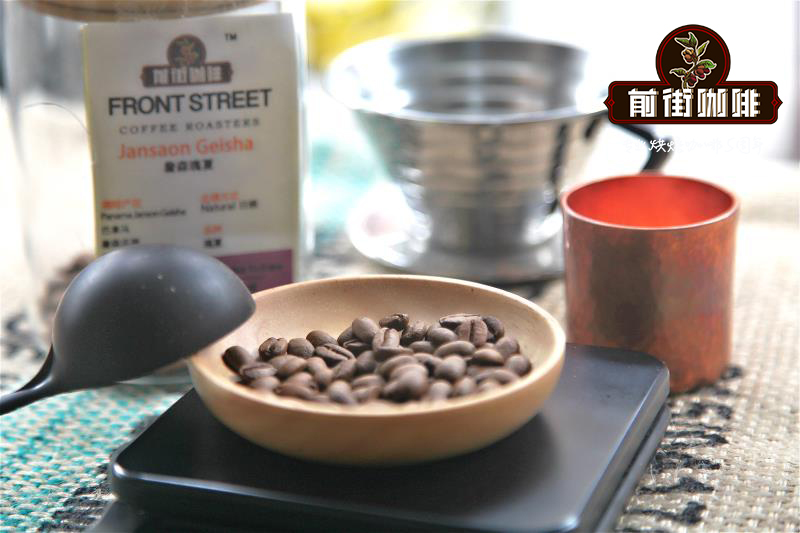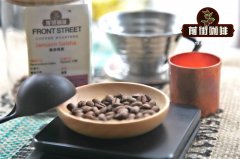Salvadoran Coffee producing area Salvadoran Coffee Flavor planting conditions

Professional coffee knowledge exchange more coffee bean information please follow the coffee workshop (Wechat official account cafe_style)
Salvadoran coffee has five major producing areas (Apaneca, Central Belt, Chichontepec, Tecapa & Cacahuatique Mountain Range), mostly distributed in the volcanic ash-covered mountain slopes or plateau areas at an altitude of 1200 meters. October to February of the following year is the coffee harvest and harvest season. The coffee beans it produces belong to Arabica, mainly Bourbon bourbon and Pacas Pacas. It can be divided into three grades according to the altitude, namely SHG (Strictly High Grown), SG (High Grown) and SC (Central Standard).
Coffee farms are located in the hills and volcanic slopes where the soil is the most fertile. Because of its special planting soil, Salvadoran coffee has a unique flavor, mellow taste, moderate sweet and sour, rich aroma, and charming tonality. Coffee beans are large beans with sweet taste and excellent flavor. El Salvador is also an important producer of organic coffee.
It is worth mentioning that El Salvador produces a hot spring coffee, named because of the use of hot spring water for washing treatment, its special and supple sour taste and sweet smell is very charming, because the low yield makes the unit price quite high, is its very characteristic coffee.
Among the countries of origin in Central America, El Salvador can be said to be the smallest country in land area. although its output is much less than that of other countries, the Pacific sea breeze and volcanic environment provide El Salvador coffee farmers with unique planting advantages and diversified flavor performances. at present, the winning variety Pacamara in many cup test competitions was born in El Salvador.
Among the producing areas of El Salvador, the Santa Ana volcano, which is located at an altitude of 2381 meters west of the capital, has the advantage of soil quality and planting height. The Santa Ana volcano, which is still in an active state, erupted in 2005. Although it caused heavy economic losses and some casualties to local coffee farmers in that year, the volcanic ash with organic matter later provided a very rich source of nutrients for the local soil, and Santa Ana is still recognized as one of the best producing areas in El Salvador.
Saint Elena Manor is one of the few estates at the highest altitude in the Santa Ana producing area, which is currently run by Mr. Lima and Mr. Don Fernando Lima and is currently the third generation landowner. Mr. Fernando has more than 30 years of coffee planting experience since he was young. At present, the main varieties planted in the manor are bourbon and Pacamara. Mr. Fernando adheres to the principle of maintaining environmental diversity in the concept of manor planting. When you first step into the manor, you can feel that it is different from other Salvadoran manors. The manor maintains a very primitive forest environment. At the same time, Mr. Fernando also retained a high proportion of old bourbon coffee trees, some of which are even more than 15 years old. for landowners, these coffee trees are the fruit of painstaking maintenance. Coffee trees will not be cut down just because they are older and have less fruit, but these old bourbon trees can provide better cup flavor although they have less fruit.
Traditionally, Salvadoran coffee farmers do not deal with the exposure of coffee fruits so carefully and relatively poorly in terms of equipment, but Fernando constantly updates a lot of equipment in the processing plant, making Santa Elena Manor one of the few estates in El Salvador to use African scaffolding for the sun drying of coffee fruits. Although the use of African scaffolding equipment tends to stretch longer in the sun, it can improve the cleanliness and sweetness of coffee.
At the same time, Mr. Fernando Fernando also began to set up his own water washing treatment station 15 years ago, with its own water washing treatment station, so that the landowner can control the subsequent process and carry out more detailed honey treatment batch experiments. In St. Elena Manor, Mr. Fernando does not immediately undergo peeling or sun treatment after collecting the red fruits of coffee. Instead, the red fruit is placed in a clean water tank in the treatment plant to improve the sweetness of the coffee, and then the final treatment is carried out.
Important Notice :
前街咖啡 FrontStreet Coffee has moved to new addredd:
FrontStreet Coffee Address: 315,Donghua East Road,GuangZhou
Tel:020 38364473
- Prev

Honduras-Olanqiu Coffee producing area Honduran Coffee Variety Honduran Coffee Manor
Professional coffee knowledge exchange more coffee bean information Please pay attention to Coffee Workshop (Wechat official account cafe_style) there are 280000 hectares of coffee plantations in Honduras, mainly small coffee merchants, most of which are smaller than 3.5 hectares, accounting for 60% of Hongguo's production. In the coffee garden, men and women collect coffee beans with their hands, then handle them carefully and treat them
- Next

Bita Manor Ethiopian Coffee beans Ethiopia Kafa Forest
Professional coffee knowledge exchange more coffee bean information Please follow the coffee workshop (Wechat official account cafe_style) the coffee beans of Ethiopia Bita Manor are selected for natural drying, and we are pleased to offer another coffee bean that is washed this year. In 2015, this coffee was chosen as our partner's favorite coffee bean, and we feel very much.
Related
- Does Rose Summer choose Blue, Green or Red? Detailed explanation of Rose Summer Coffee plots and Classification in Panamanian Jade Manor
- What is the difference between the origin, producing area, processing plant, cooperative and manor of coffee beans?
- How fine does the espresso powder fit? how to grind the espresso?
- Sca coffee roasting degree color card coffee roasting degree 8 roasting color values what do you mean?
- The practice of lattes: how to make lattes at home
- Introduction to Indonesian Fine Coffee beans-- Java Coffee producing area of Indonesian Arabica Coffee
- How much will the flavor of light and medium roasted rose summer be expressed? What baking level is rose summer suitable for?
- Introduction to the characteristics of washing, sun-drying or wet-planing coffee commonly used in Mantenin, Indonesia
- Price characteristics of Arabica Coffee Bean Starbucks introduction to Manning Coffee Bean Taste producing area Variety Manor
- What is the authentic Yega flavor? What are the flavor characteristics of the really excellent Yejasuffi coffee beans?

